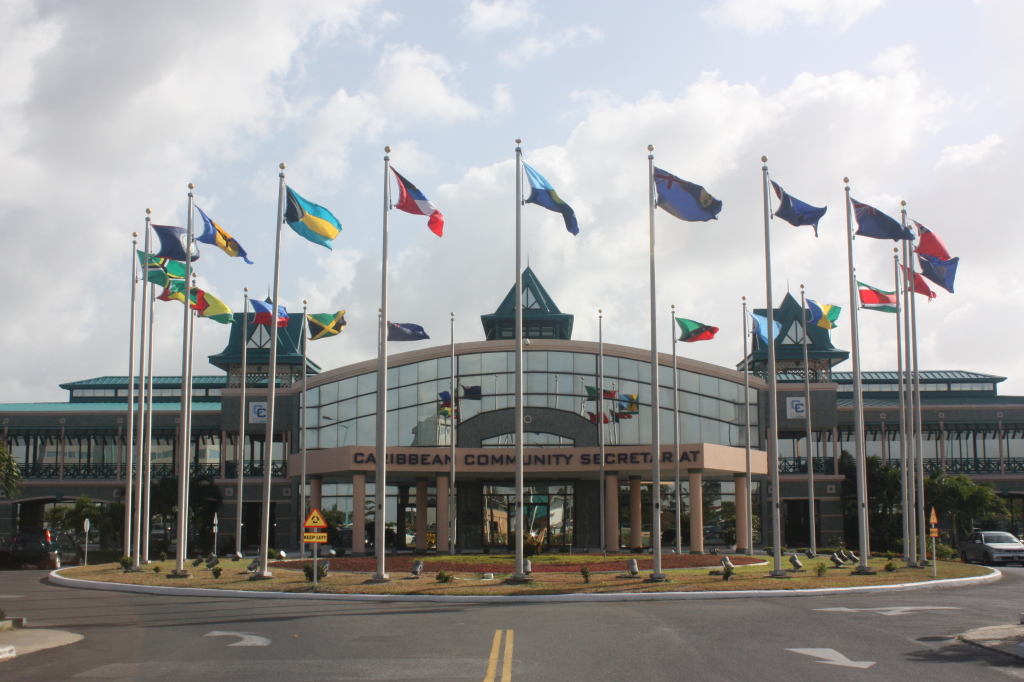As the Caribbean Community (CARICOM) celebrates 50 years since its creation, Prime Minister Trudeau of Canada and Prime Minister Skerrit of Dominica, Chair of the Conference of CARICOM Heads of Government, co-chaired the Canada-CARICOM Summit, under the theme “Strategic Partners for a Resilient Future.”
To mark the occasion of the first Canada-CARICOM Summit held in Canada, leaders launched a Strategic Partnership, establishing a new permanent mechanism for structured high-level engagement and follow through on joint actions. They reaffirmed their unwavering friendship, built on strong people-to-people, historical and cultural ties, shared economic interests, and a commitment to democracy, human rights and the rule of law. Discussion focused on priorities of climate change, access to finance, regional and global security, and trade and investment.
On climate change, leaders called for an intensified collaborative effort to limit global temperature increase to 1.5°C above pre-industrial levels. While recognizing recent efforts on mitigation, adaptation, and the protection of biodiversity, they expressed the importance of practical actions, such as assistance on carbon pricing and operationalising a fund on loss and damage from climate change in the lead up to COP28 and beyond. CARICOM leaders welcomed Canada’s new support of $64.5 million in new climate financing, and $10 million for resilient agriculture systems.
On access to finance, leaders acknowledged the particular vulnerabilities of CARICOM countries to external shocks and offered perspectives on how to overcome systemic challenges in order to access finance. Focus was placed on reforming the international financial architecture, including the proposals of the Bridgetown Initiative. They agreed to work together in advancing solutions, such as new criteria to access finance at the Caribbean Development Bank, the widespread adoption of climate resilience debt clauses, and jointly advocating for common interests through Canada and CARICOM members’ shared constituency at the International Monetary Fund and the World Bank.
On regional security, leaders focused on the crisis in Haiti. They welcomed the United Nations Security Council Resolution 2699 (2023) adopted on 2 October 2023 and emphasized the importance of establishing a strong transitional government of unity to support the role of the MSS, the multinational security support mission (MSS). Leaders fully supported the central role of CARICOM and its Eminent Persons Group (EPG) in advancing political dialogue to establish a stable and representative arrangement that can effectively govern towards free and fair elections, and work with the international community to set the parameters for the MSS. Leaders welcomed Canada’s coordination role in building the Haitian National Police (HNP) capacity, including additional training support of the HNP.
While discussions focused on Haiti, leaders also engaged on key security challenges in the region, including illicit trafficking of weapons and drugs, and surging violent crime. In support of this, Canada committed $6.6 million to tackle illegal arms trafficking in Haiti and the wider Caribbean, as well as $4.6 million to address gender-based violence and women’s rights in the Eastern Caribbean.
Leaders also spoke of the importance of our common commitment to enhancing peace and security in both the Western Hemisphere and the world, including in Venezuela and the Middle East.
On trade and investment, leaders shared their perspectives on growth opportunities in the region to deepen commercial ties between Canada and CARICOM. CARICOM leaders welcomed Canada’s expansion of the Commonwealth Caribbean Countries Tariff program (CCCT), which gives countries in the region duty-free trade access to the Canadian market, to include textiles and apparel, as well as a new foreign labour program for agriculture and fish processing under the Temporary Foreign Worker Program. Shared priority sectors outlined for trade and investment included agriculture, renewable energy and infrastructure. Leaders also offered insights on addressing ongoing supply chain issues; increasing the movement of people, goods, and investments; facilitating educational exchanges; and critical development needs. They emphasized the importance of engaging Caribbean diaspora communities in Canada to build strong and sustainable economies.
Participants
- Canada Prime Minister Justin Trudeau
- Antigua and Barbuda High Commissioner Ronald Sanders
- Bahamas Prime Minister Philip Davis
- Barbados Prime Minister Mia Mottley
- Belize Prime Minister Johnny Briceño
- Dominica Prime Minister Roosevelt Skerrit
- Grenada Foreign Minister Joseph Andall
- Guyana President Mohamed Irfaan Ali
- Haiti Prime Minister Ariel Henry
- Jamaica Prime Minister Andrew Holness
- Saint Kitts and Nevis Prime Minister Terrance Drew
- Saint Lucia Prime Minister Philip Pierre
- Saint Vincent and the Grenadines Prime Minister Ralph Gonsalves
- Suriname President Chandrikapersad Santokhi
- Trinidad and Tobago Prime Minister Keith Rowley
- CARICOM Secretary General Carla Natalie Barnett


